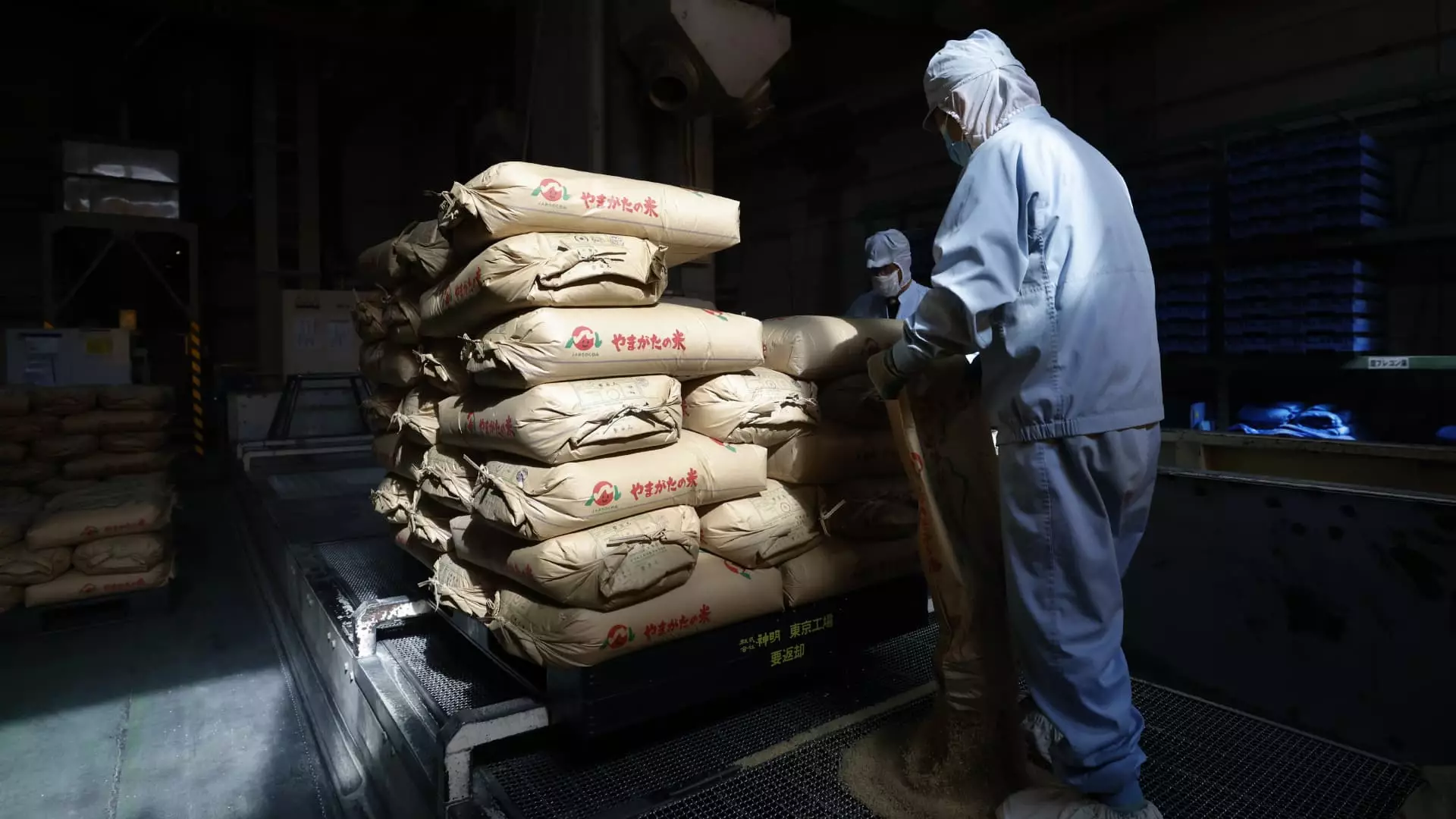In the land of the rising sun, rice has long remained not just a staple food but a cultural cornerstone, intricately woven into the fabric of Japanese society. However, the recent rise in rice prices—an astonishing 101.7% year-over-year increase—is more than just a mere economic statistic; it’s a potential harbinger of social unrest and concern for food security. With prices exploding in May, following similarly alarming increases in the prior months, one can’t help but wonder if rice’s status as Japan’s staple may soon shift from a source of nourishment to a cause for desperation.
The Japanese government’s decision to release emergency rice stockpiles serves as an acknowledgment of a deepening crisis. Such actions feel reactive rather than proactive, suggesting that policymakers may have underestimated the inflationary pressures building within the economy. This sense of urgency only gives credence to the long-held sentiment that Japan’s approach to food security needs a seismic rethink. The alarming spike in prices isn’t just an isolated incident; it reverberates through households, demanding austerity measures from families who may already be struggling to make ends meet.
The Bigger Picture: Economic Indicators at Play
The international financial community has cast a wary eye on Japan as the core inflation rate climbed to 3.7% in May, surpassing economic forecasts. This isn’t merely an abstract indicator but a reflection of rising costs across the board, with food—particularly rice—serving as a bellwether. Market strategist Marcella Chow highlighted the heavy influence of rice prices on Japan’s core inflation, making it painfully clear that the future trajectories of these prices could dictate overall economic health.
If rice constitutes about half of Japan’s core inflation, this isn’t just about food economics. It’s a societal issue, affecting everything from consumer confidence to government policy. With the Bank of Japan maintaining interest rates at an unprecedented 0.5%, the fragility of the economic landscape becomes even clearer. Are we witnessing the beginnings of a stagnation in the Japanese economy? The answer might lie in how swiftly and effectively the government can counter rising prices and restore consumer trust.
External Influences: The Global Economic Climate
One cannot ignore the ripple effects caused by global geopolitical tensions, particularly in energy-producing regions. Portfolio manager Kei Okamura pointed out the interconnected nature of food and energy prices, raising an essential cautionary note about the fragility of our supply chains. As global crises simmer, Japan’s economy hangs in the balance, exacerbating inflationary pressures on essential goods.
With geopolitical instability flaring up globally, a single event could spur further disruptions, triggering off another wave of price hikes on essentials such as rice. This isn’t mere speculation; the interconnectedness of global markets means Japan could face both local and international challenges that compound the issues at hand.
The Response: An Urgent Call for Action
As Japan’s financial and political leaders grapple with these realities, calls for a coherent food security policy are becoming increasingly urgent. The reactive measures of tapping into emergency reserves may provide a short-term relief, but they do not fix the underlying structural issues plaguing the agricultural sector. A long-term solution will require not only emergency responses but also strategic investments in domestic food production, sustainability practices, and even technology—much like other nations have done.
The public interest should take precedence over corporate interests in this case; policymakers need to engage genuine, transparent dialogue with citizens who are experiencing the brunt of this crisis. If Japan is to weather this storm, it must ensure that no household goes hungry or experiences undue hardship with rising food costs.
The rice price crisis in Japan is emblematic of broader economic challenges that have the potential for dire social consequences. As inflation continues to pose threats not just to wallets but to the social fabric of society, an overhaul in strategy is not just recommended—it’s imperative. Japan stands at a crossroads with its rice prices, and the choices made in the coming months will resonate across generations.

